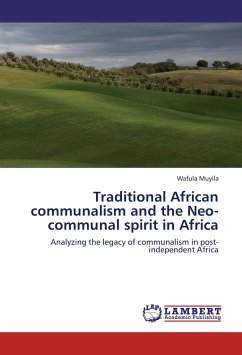
Corruption and traditional african moral value systems
Versandkostenfrei!
Versandfertig in 6-10 Tagen
52,99 €
inkl. MwSt.

PAYBACK Punkte
26 °P sammeln!
This study focused on socio-cultural moral' value systems that it believed are responsible for abetting corruption in the Kenyan society since traditional communal attitudes and beliefs seem to have toned down' condemnation of corrupt persons especially if the suspect comes from ones' community. The main argument of this study was that some traditional African moral' values have undermined the fight against corruption. The study has established that moral values like respect,reciprocation and trust can become vices if they are interpreted and practiced wrongly.If trust is wrongly interpreted i...
This study focused on socio-cultural moral' value systems that it believed are responsible for abetting corruption in the Kenyan society since traditional communal attitudes and beliefs seem to have toned down' condemnation of corrupt persons especially if the suspect comes from ones' community. The main argument of this study was that some traditional African moral' values have undermined the fight against corruption. The study has established that moral values like respect,reciprocation and trust can become vices if they are interpreted and practiced wrongly.If trust is wrongly interpreted it negates common sense which is vital for human well being. Negative ethnicity breeds egoism at the expense of the common good.African traditional moral values seem to encourage disrespect for formal procedures and regulations thus promoting nepotism hence violating the principle of objectivity and fairness.The study recommends moral empowerment, civic education,genuine democratic governanceand whistle blowing as important avenues for fighting corruption.












